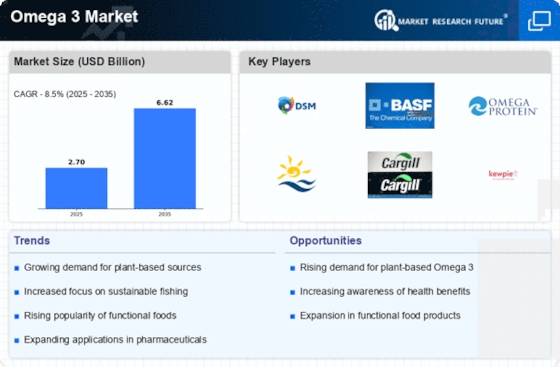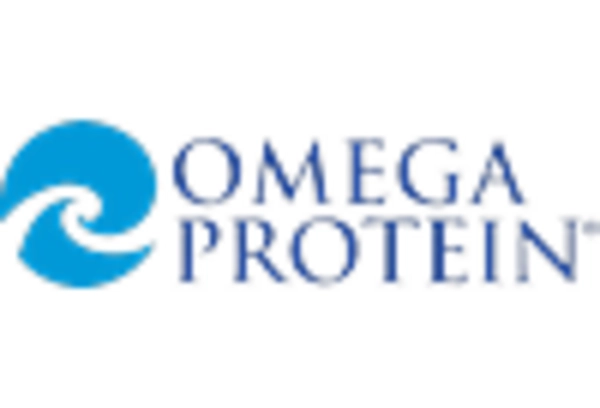Market Trends
Key Emerging Trends in the Omega 3 Market
The omega-3 market has been experiencing significant growth globally, driven by increasing consumer awareness of the health benefits associated with omega-3 fatty acids and a growing demand for functional foods and dietary supplements. Omega-3 fatty acids, including EPA (eicosapentaenoic acid) and DHA (docosahexaenoic acid), are essential nutrients that play a crucial role in supporting heart health, brain function, and overall well-being. One notable trend in the omega-3 market is the rising popularity of omega-3 fortified foods and beverages. Manufacturers are incorporating omega-3 fatty acids into a wide range of products, including dairy, plant-based milk alternatives, bread, cereals, snacks, and beverages, to appeal to health-conscious consumers seeking convenient ways to incorporate omega-3s into their diets.
Moreover, the omega-3 market is witnessing a shift towards alternative sources of omega-3 fatty acids, including algae-derived omega-3 supplements and plant-based omega-3 oils. While fish oil supplements have traditionally been the primary source of omega-3s, concerns about overfishing, environmental sustainability, and potential contaminants such as heavy metals and PCBs have led to a growing interest in plant-based alternatives. Algae-derived omega-3 supplements offer a sustainable and vegan-friendly source of EPA and DHA, appealing to consumers following plant-based diets or seeking alternatives to traditional fish oil supplements.
Another significant trend shaping the omega-3 market is the increasing awareness of the importance of omega-3s for prenatal and maternal health. Omega-3 fatty acids, particularly DHA, play a critical role in fetal development, including brain and eye development, and are essential for maintaining maternal health during pregnancy and lactation. As a result, there is a growing demand for omega-3 supplements specifically targeted towards pregnant and breastfeeding women, as well as fortified foods and beverages marketed as prenatal or maternal nutrition products. Additionally, healthcare professionals are increasingly recommending omega-3 supplementation during pregnancy as part of prenatal care to support optimal maternal and fetal health outcomes.
Furthermore, the omega-3 market is experiencing a shift towards personalized nutrition and targeted supplementation, driven by advancements in genetic testing and personalized health analytics. As consumers become more interested in understanding their individual nutritional needs and optimizing their health, there is a growing demand for customized omega-3 supplements tailored to specific health goals and genetic profiles. Personalized omega-3 supplementation programs, which may include genetic testing, blood tests, and dietary assessments, offer consumers personalized recommendations for omega-3 intake based on their unique health status, lifestyle factors, and genetic predispositions.


















Leave a Comment